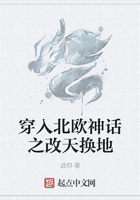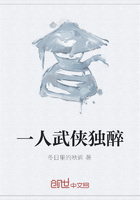It proceeded from conscientious distress of mind. A relation of this family had been the regular confessor of a convent. With the Lady Abbess of this convent and her trusty nuns, the Princesse de Conde had deposited considerable sums of money, to be bestowed in creating influence in favour of the Cardinal de Rohan. The confessor, being a man of some consideration among the clergy, was applied to, to use his influence with the needier members of the Church more immediately about him, as well as those of higher station, to whom he had access, in furthering the purposes of the Princesse de Conde. The bribes were applied as intended.
But, at the near approach of death, the confessor was struck with remorse. He begged his family, without mentioning his name, to send the accounts and vouchers of the sums he had so distributed, to me, as a proof of his contrition, that I might make what use of them I should think proper. The papers were handed to my messenger, who pledged her word of honour that I would certainly adhere to the dying man's last injunctions. She desired they might be sealed up by the family, and by them directed to me.--[To this day, I neither know the name of the convent or the confessor.]-- She then hastened back to our place of rendezvous, where I waited for her, and where she consigned the packet into my own hands.
"That part of the papers which compromised only the Princesse de Conde was shown by me to the Princess on the occasion I have mentioned. It was natural enough that she should have been shocked at the detection of having suborned the clergy and others with heavy bribes to avert the deserved fate of the Cardinal. I kept this part of the packet secret till the King's two aunts, who had also been warm advocates in favour of the prelate, left Paris for Rome. Then, as Pius VI. had interested himself as head of the Church for the honour of one of its members, Igave them these very papers to deliver to His Holiness for his private perusal. I was desirous of enabling this truly charitable and Christian head of our sacred religion to judge how far his interference was justified by facts. I am thoroughly convinced that, had he been sooner furnished with these evidences, instead of blaming the royal proceeding, he would have urged it on, nay, would himself have been the first to advise that the foul conspiracy should be dragged into open day.
"The Comte de Vergennes told me that the King displayed the greatest impartiality throughout the whole investigation for the exculpation of the Queen, and made good his title on this, as he did on every occasion where his own unbiassed feelings and opinions were called into action, to great esteem for much higher qualities than the world has usually given him credit for.
"I have been accused of having opened the prison doors of the culprit Lamotte for her escape; but the charge is false. I interested myself, as was my duty, to shield the Queen from public reproach by having Lamotte sent to a place of penitence; but I never interfered, except to lessen her punishment, after the judicial proceedings. The diamonds, in the hands of her vile associates at Paris, procured her ample means to escape. I should have been the Queen's greatest enemy had I been the cause of giving liberty to one who acted, and might naturally have been expected to act, as this depraved woman did.
"Through the private correspondence which was carried on between this country and England, after I had left it, I was informed that M. de Calonne, whom the Queen never liked, and who was called to the administration against her will--which he knew, and consequently became one of her secret enemies in the affair of the necklace--was discovered to have been actively employed against Her Majesty in the work published in London by Lamotte.
"Mr. Sheridan was the gentleman who first gave me this information.
"I immediately sent a trusty person by the Queen's orders to London, to buy up the whole work. It was too late. It had been already so widely circulated that its consequences could no longer be prevented. I was lucky enough, however, for a considerable sum, to get a copy from a person intimate with the author, the margin of which, in the handwriting of M. de Calonne, actually contained numerous additional circumstances which were to have been published in a second edition! This publication my agent, aided by some English gentlemen, arrived in time to suppress.
"The copy I allude to was brought to Paris and shown to the Queen. She instantly flew with it in her hands to the King's cabinet.
"'Now, Sire,' exclaimed she, 'I hope you will be convinced that my enemies are those whom I have long considered as the most pernicious of Your Majesty's Councillors--your own Cabinet Ministers--your M. de Calonne! --respecting whom I have often given you my opinion, which, unfortunately, has always been attributed to mere female caprice, or as having been biassed by the intrigues of Court favourites! This, I hope, Your Majesty will now be able to contradict!'
"The King all this time was looking over the different pages containing M. de Calonne's additions on their margins. On recognising the hand-writing, His Majesty was so affected by this discovered treachery of his Minister and the agitation of his calumniated Queen that he could scarcely articulate.
"'Where,' said he, I did you procure this?'
"'Through the means, Sire, of some of the worthy members of that nation your treacherous Ministers made our enemy--from England! where your unfortunate Queen, your injured wife, is compassionated!'
"'Who got it for you?'
"'My dearest, my real, and my only sincere friend, the Princesse de Lamballe!'
"The King requested I should be sent for. I came. As may be imagined, Iwas received with the warmest sentiments of affection by both Their Majesties. I then laid before the King the letter of Mr. Sheridan, which was, in substance, as follows:















